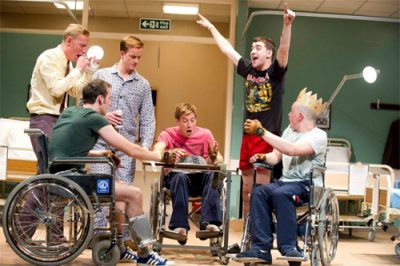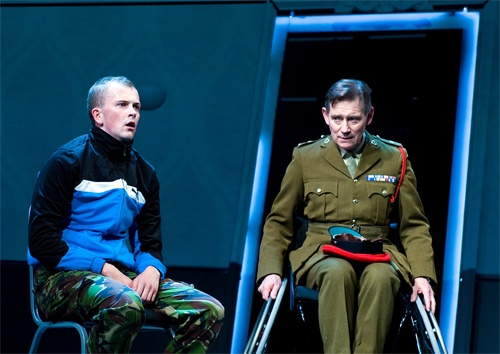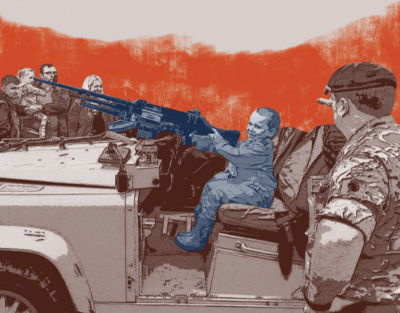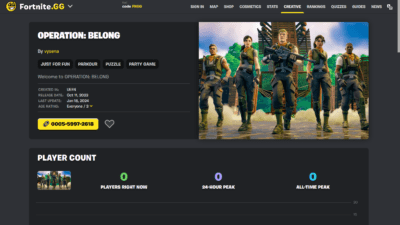Critical portrayals of life in the armed forces in two West End plays
Owen Everett, ForcesWatch

There are two plays on in London’s West End currently that depict life in the UK military, and they do so critically. There is considerable similarity in the themes of the two plays: why young men join the armed forces, how they are often neglected when injured, and the horror of contemporary war in general.
Our Boys‘, by Jonathan Lewis, at the Duchess Theatre is a revival, having first been performed in 1993. The scene throughout is a ward in Woolwich Military Hospital in 1984. There are six characters, five privates and a potential officer, all in their early-to-mid twenties. Much of the play is light-hearted, the young men joking with and teasing each other to ease their frustrating situation, but there are some poignant moments, and a particularly-powerful ending.
Sandi Toksvig’s Bully Boy is at the St James Theatre. The title comes from the nickname of a unit serving in Iraq which Private Eddie Clark belongs to. He is being investigated by wheelchair-bound Military Police Officer Major Hadley over the alleged murder of an unarmed eight-year-old Iraqi boy during an attack on his unit. In stark contrast to Our Boys it is intense throughout – its funnier moments and scenes only offer partial respite.

Bully Boy – credit Mike Eddowes
Our Boys is based on playwright Jonathan Lewis’ own experience; he was sponsored by the army through university but injured his back before starting officer training at Sandhurst, and spent time in the very military hospital that the play is set in. One of the actors interviewed with Lewis on British Forces News states that his research for his role included talking to members of the armed forces about their experiences (http://bfbs.com/news/uk/military-play-explores-life-after-injury-61151.html).
Sandi Toksvig, a self-defined pacifist, was greatly influenced by reading Colonel Dave Grossman’s book On Killing: The Psychological Cost of Learning to Kill in War and Society (http://www.killology.com). She was compelled to write Bully Boy, ‘full of rage on behalf of the young men who have been sent to do older men’s political bidding’, and with many questions, such as, ‘how is it possible that one in ten prisoners in England and Wales once served in the armed forces?’ (http://nickhernbooksblog.com/2012/09/20/sandi-toksvig-why-i-wrote-bully-boy/).
Why the young sign up
Both plays explore why young men sign up in the first place. Bully Boy’s Eddie, from Burnley, did so at 16 because ‘There was nowt else to do’ (the local mill had closed down), and because he wanted adventure. Our Boys’ Ulster Rifleman Keith joined, similarly, because he was ‘unemployed’ and had few qualifications. There is also a common disillusionment with the army reality, Trooper Joe asserting that it was worse than if there had been conscription, as ‘I’ve only got myself to to blame’, and Eddie lamenting – when contemplating a civilian life – ‘they trained me to kill people – what use is that?’ We also see how Ours Boys’ Potential Officer Jonathan got involved: like Lewis himself, he was sponsored through sixth form and university (which his divorced mother couldn’t have otherwise afforded), and was attracted more to the possibility of playing cricket rather than a military career. On his recovery he decides to leave the army, and has to pay back the £9000 he has been given, despite having no money to do so.
Related to these different but commonly-necessitated reasons for joining are the class relationships, based on rank, which both plays look at. After Eddie saves Hadley when part of their convoy is blown up, they share moments of great hilarity and anger during the protracted investigation, but the latter’s outburst – ‘I’m not your friend!’ – is telling. In Our Boys the privates are not very deferential to their ‘superior’, no doubt partly due to his unauthoritative manner and their somewhat-equalising situation, but also because of their general dislike and distrust of officers, who Keith criticises as being overeducated and lacking in common sense. This leads to a discussion on whether all orders should be obeyed, which is pertinent because Fusilier Parry lost most of his toes from frostbite because an officer forbade him from removing his soaked footwear.
Casualities of war
The second common theme of the two plays is the plight of injured soldiers. Our Boys’ blurb summarises it as being, ‘fired by anger at the neglect of our wounded heroes’. The injuries vary: three of the six are in wheelchairs, and at least two have been there for over a year. Seemingly most severely-injured is Rifleman Ian, just twenty years old, who spent three months in a coma and is now re-learning how to move and speak. He is the only one who appears to have been injured in actual combat, from which he suffers vivid nightmares. It is unclear how many of the others saw active service, but there are references to the then recent Falklands War and to Northern Ireland, and Trooper Joe is traumatised by the IRA nail bomb attack in which he was hurt, although we only discover this at the end. In Bully Boy we learn that Hadley’s legs were paralysed not during combat, but when he was attacked by drunk British soldiers on the return voyage.
Alcohol is a recurring symbol in both plays, but Toksvig looks at mental health in far more detail; in Hadley’s second monologue he stresses the issue of ‘psychiatric casualties’, stating that 264 UK veterans from the Falklands war have committed suicide, as opposed to the 255 who died in the war itself (http://news.bbc.co.uk/1/hi/uk/1758301.stm). However, the military’s neglect of its injured is given prominence by Lewis: Parry recounts a night out as a squaddie where they discovered that an old homeless drunk they had been mocking was a highly-decorated Korea veteran. Parry himself only avoids being discharged – and is instead given a job as a clerk, which he resents because he always wanted to be paratrooper – by betraying the others about an illicit drinking game they played on the ward.
All this prompts the question: are things any better now? In Bully Boy’s contemporary setting Eddie is given electric shock treatment for his severe depression (the audience shares Hadley’s surprise that this is still used). Not considered mentally stable enough to return to active duty, Eddie is given an honourable discharge. Hadley tells us that he subsequently shot himself: ‘the first time he had fired his gun – at anybody’.
The horror of war
This revelation is perhaps an allusion to a statistic Hadley gives in his opening monologue, and which forms part of the third common theme, particularly explicit in Bully Boy: the horror of war. The Major emphasises that in the Battle of Gettysburg during the American Civil War many thousands of troops did not fire their weapons: ‘Maybe most people – even soldiers – don’t want to kill’.
Eddie’s racist resentment of Iraqis seems to stem from his fear: it’s ‘an insurgency, not a “front”‘, meaning that British soldiers are ‘not safe anywhere’. We learn that the sergeant of his unit has been suspected for some time of committing numerous ‘war crimes’. Eddie struggles to sleep, and when he does he has nightmares of Iraqi villages strewn with dead bodies. At times he shakes profusely, at others he becomes furiously violent. His friends from his unit were liquidised when their convoy was attacked – he recounts being covered in their remains. He is given compassionate leave, is arrested for hitting a girl, goes AWOL, and is brought back to the major after running on top of a moving train. The electric shock treatment follows.
Hadley carries his own trauma from the Falklands: when his ship attacked, he felt completely helpless, and watched his best friend die in front of him, calling for his mum. In Our Boys one of the privates states ‘It’s not for queen and country – you do it for your mates’.
Neither play heroises the armed forces, or glamorises war. A perceived civilian disconnect is suggested, with Eddie’s dad unsure if he’d served in Iraq or Afghanistan (‘what difference is it to him?’). Perhaps addressing this disconnect was one of the aims of The Two Worlds of Charlie F, a play performed by and based on the experiences of Bravo 22 – a company of severely-injured armed forces veterans – first staged in 2011, which toured the UK earlier this year.
Our Boys and Bully Boy are both remarkable plays which explore many of the grounds for criticism of the UK military on which ForcesWatch bases its work. Their coincidental timing, and the inclusion of ‘boy’ in both titles because the world they represent is still mainly made up of young men – almost boys – make them even more striking.
Bully Boy is on until 27 October – http://www.stjamestheatre.co.uk/events/bully-boy/ .
Our Boys is on until 15 December – http://www.ourboystheplay.com/ .
See more: recruitment, risks, veterans, culture
Like what you read?
> Sign up for our newsletter or blog notifications
> Support our work – from just £2 a month










